
Inauguration of Golden Jubilee Year |
Foundation Day |
Presidential Visit |
XLII Annual Convocation |
The Institute commenced the celebrations on 8th August 2009 with Mr. N. R. Narayana Murthy, chief mentor of Infosys as the chief guest. The other distinguished guests who graced the occasion were Prof. M. Anandakrishnan, Chairman, Board of Governors, IIT Kanpur; Prof. Ashok Misra, former Director of IIT Bombay and Mr. Arun Shourie, a Rajya Sabha member. Prof. Sanjay G. Dhande, Director, IIT Kanpur and several other dignitaries were also present. The audience comprised faculty members, staff members, students, former faculty members, and alumni.
Mr. Narayana Murthy declared open the Golden Jubilee year by hitting
a gong with a hammer. He also unveiled the Golden Jubilee stone. Earlier
in the day, five trees had been planted and lamps lighted by Mr. Murthy,
Prof. Anandakrishnan, Prof. Sanjay G. Dhande and Prof. R. K. Thareja.
A scroll was also signed by them. The following are the highlights of
the inaugural function.
Inaugural
Addresses
 |
Prof. Sanjay G. Dhande: In the welcome speech, Prof. Dhande summed up the five decades of IITK's existence – first, the decade of growth; second, the decade of unrest caused by the Institute’s staff; third, the decade of calm and introspection; fourth, the decade of funding crunch and consequent belt-tightening; and fifth, the decade of reinvigoration in which the Institute made a mark internationally.
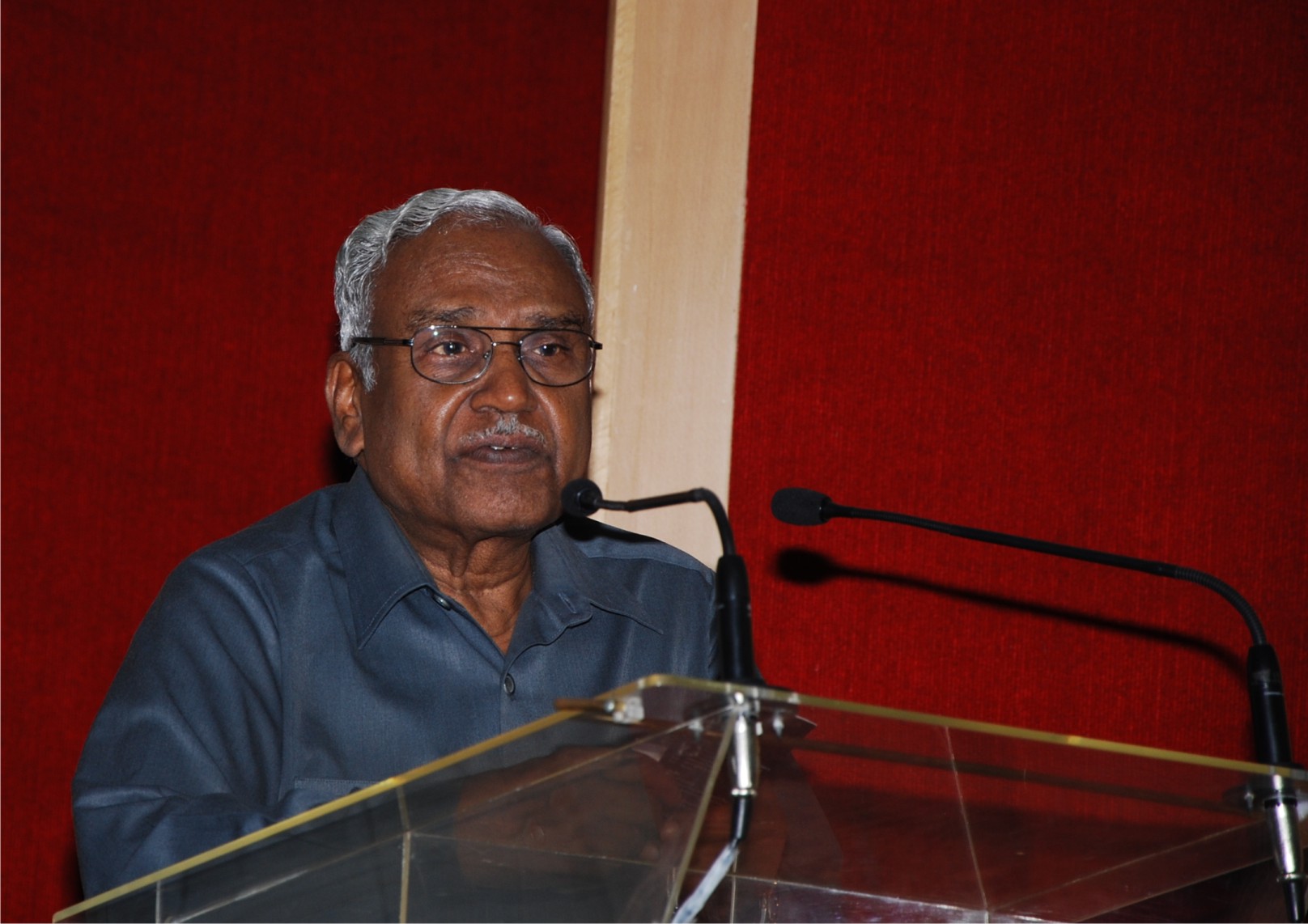 |
Prof. M. Anandakrishnan: While reminiscing about the early years of IIT Kanpur, Prof. Anandakrishnan recalled the fervor and dedication of the young faculty members under the dynamic leadership of Prof. P. K. Kelkar, the founding Director of IITK. He emphasized the pivotal role of Prof. Kelkar in establishing an Institute where science-based engineering education was put in place for the first time.
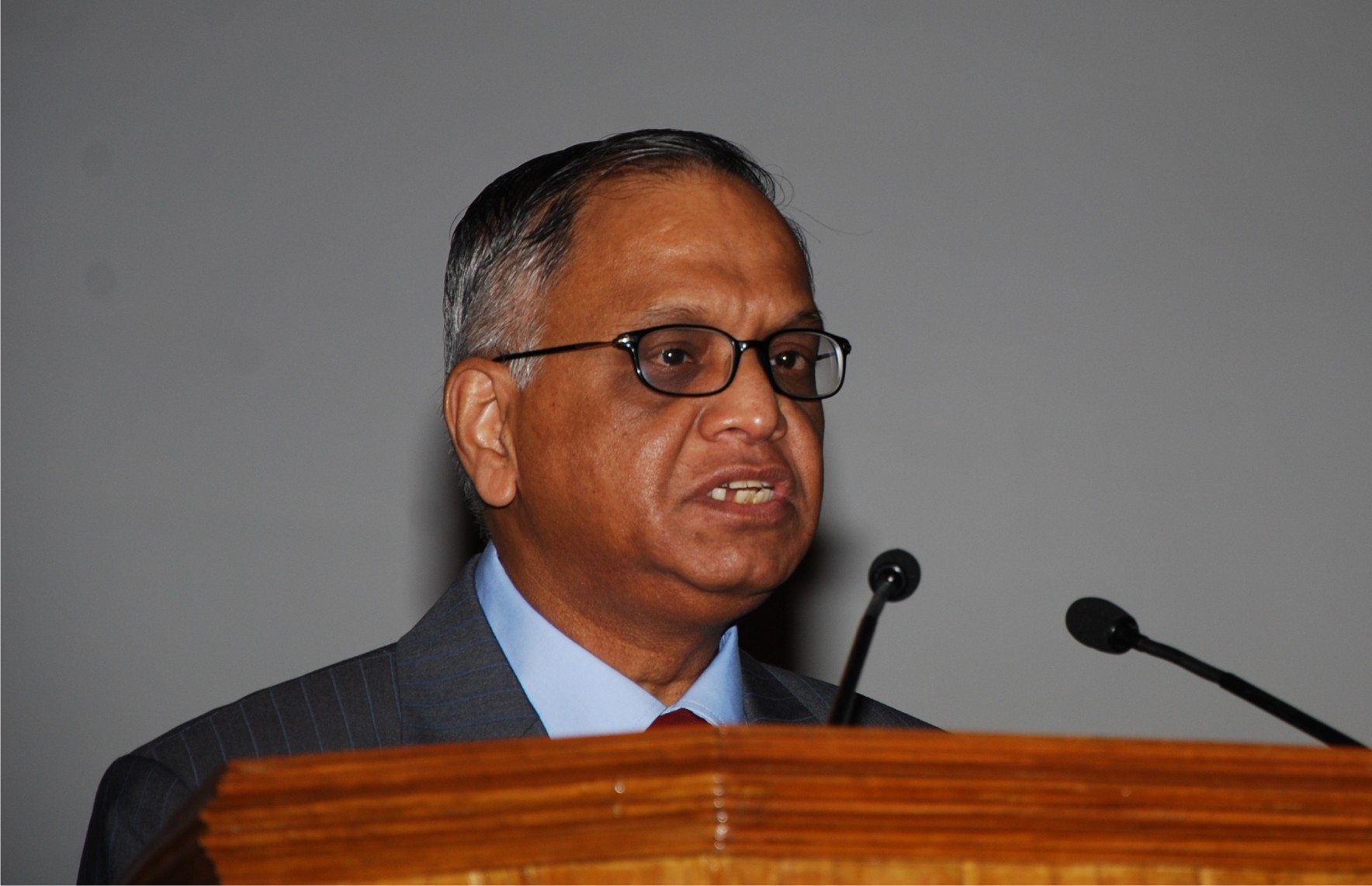 |
Mr. Narayana Murthy: Addressing the huge gathering of intellectuals, Mr. Murthy talked about the importance of full academic and financial autonomy for higher technical institutes like the IITs to enable them to meet global challenges in the next 50 years and urged the government to grant them this autonomy. He also said that the Board of Governors should be strengthened and empowered to take decisions and implement them. He highlighted the need for strong doctoral and post-doctoral programs at the IITs, IITK in particular, and asked the alumni to come forward to strengthen the research facilities at their institute. Mr. Murthy concluded by saying that IIT Kanpur should transform itself into one of the top 20 engineering institutes in the world.
Premiere of Documentary film on IIT Kanpur
A 45-minute documentary on IIT Kanpur directed by Mr. Sunil Shanbag was released on this historic day. The documentary traced the complete journey of the Institute from its modest beginning at the Harcourt Butler Technical Institute (HBTI) campus to the present day. It talks about the dreams and aspirations of the Institute for the future and also shows, through a series of interviews with people associated with it, how the ethos of the Institute was established by its founding members. It highlights both the bitter and the sweet moments of the Institute. The documentary also gives a vivid account of the vision of Prof. Kelkar.
Mr. Sunil Shanbag, the film’s director, has years of experience
in theatre and in the television industry as a writer, producer and
director. He has also worked as an actor, designer and an assistant
director with Mr. Satyadev Dubey from 1974 to 1984 on about twenty-five
productions. In 1985, he along with his group of friends founded a repertory
company named Arpana and he became its art director. He has also established
independent film companies - Setu Films and Chrysalis Films.
Photo
Exhibition
Apart from the documentary film, a photo exhibition was organized at
the Outreach centre which provided vivid pictorial narratives of the
development of the Institute over the last 50 years.
 |
Golden Jubilee Walk
Yet another remarkable event was organized as part of the inaugural
function by the Staff Gymkhana under the guidance of Prof. A. K. Lal
from the Department of Mathematics and Statistics. It was the Golden
Jubilee Walk and around 1700 people participated in it. It drew participants
from all age groups. There were young, middle aged and old people all
eagerly waiting to prove their mettle. The event was a salute to the
spirit of IIT Kanpur. The walk ended with the prize distribution ceremony
with Prof. Sanjay G. Dhande, Director and Dr. S. S. Kashalkar, Registrar,
IITK giving away the prizes.
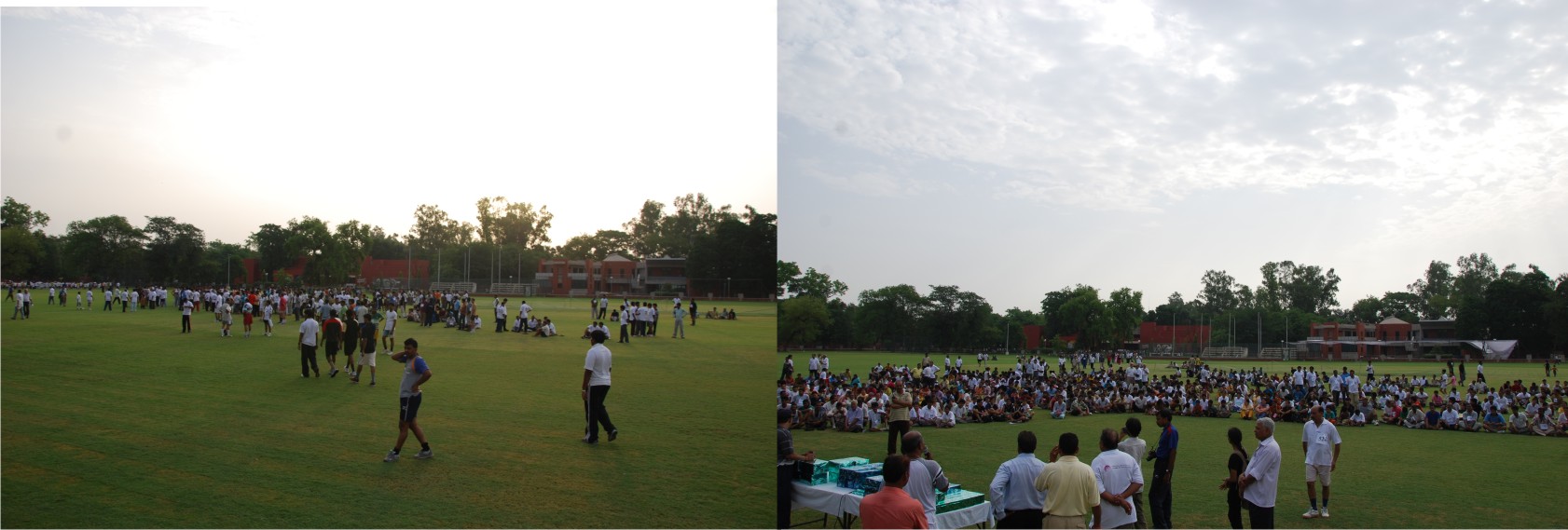 |
 |
Workshop on ‘Challenges in Higher Education’
The following day a workshop titled ‘Challenges in Higher Education’
was organized. It’s aim was to identify the problems and concerns
of educational institutions in the country. Some very eminent people
were present at the workshop. Mr. Sam Pitroda, Mr. Arun Shourie, Prof.
Ashok Misra, Prof. M. Anandakrishnan, Mr. Shrikantan Murthy and Mr.
S. N. Zindal shared their views and made valuable recommendations. A
consensus was reached on greater autonomy and on research based reorientation
of higher and technical education. Later in the day Prof. Gautam Barua,
Mr. Pawan Agarwal and Prof. Pankaj Jalote deliberated on issues pertaining
to the faculty, admission procedures, governance and structuring of
such Institutes. The discussion was moderated by Prof. Sanjay G. Dhande.
Some of the views expressed by the
participants:
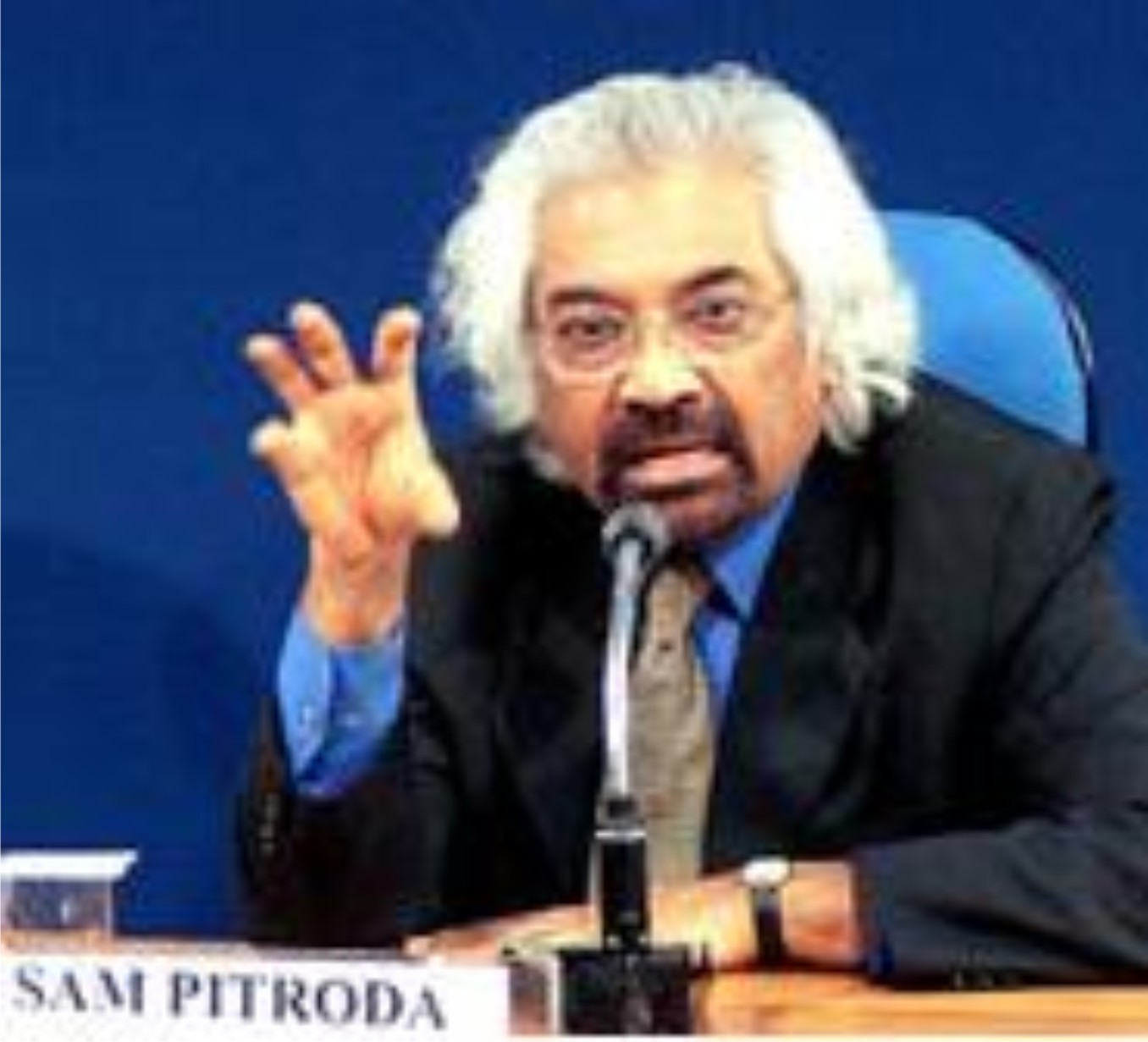 |
Mr. Sam Pitroda,
Chairman, National Knowledge Commission, expressed his concern over
the delay in the implementation of policies chalked out for improving
the standards of higher technical education in India. He also said that
most of the problems have solutions on the table and there was no need
for protracted debate.
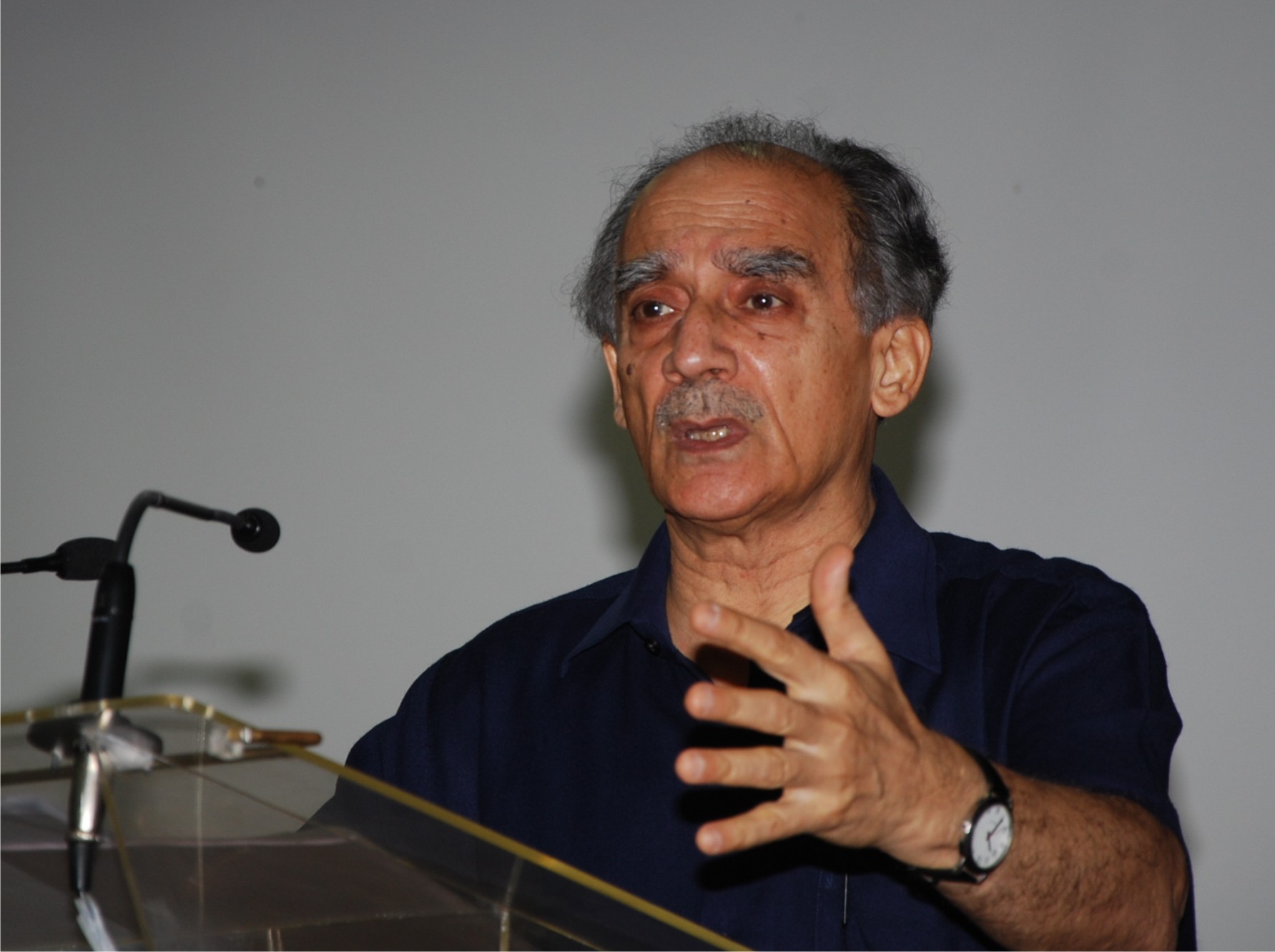 |
Mr.
Arun Shourie, a member
of the Rajya Sabha, an author and a journalist, also expressed his concern
over the neglect of higher technical education. He said that the standards
and norms of excellence are under assault in India and in order to overcome
this grave problem the benchmark should be set against the best and
not against the people in our limited catchment area.
 |
Prof. M. Anandakrishnan,
Chairman, Board of Governors, IIT Kanpur, emphasized the need to humanize
technical education and the role of engineers and scientists in shaping
the future of the country. He also pointed out that the recommendations
of the Kothari Commission had already laid out a framework for holistic
technical education in the country.
 |
Prof. Ashok Misra, former
Director of IIT Bombay, spoke about the need for the inclusion of commercial
research in the curriculum to bring about industrial development. Also,
academia-industry interaction should be developed and strengthened.
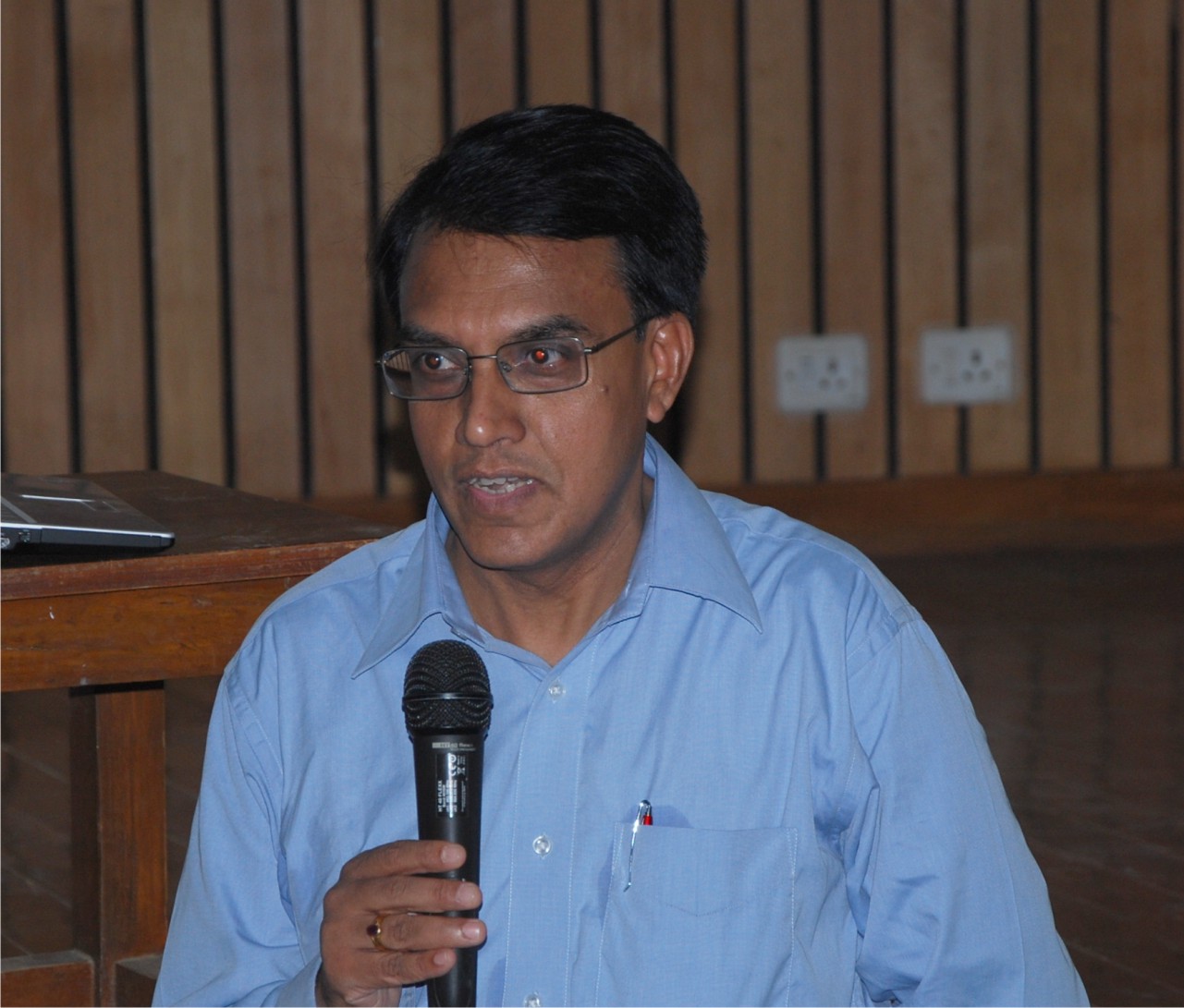 |
Mr. Shrikantan Moorthy,
Vice President and Head, Education and Research, Infosys, pointed
out that only about 25% of technical graduates are employable and therefore
it becomes necessary to provide proper training to the students. Infosys
has already taken a step in this direction by launching several training
programs like Campus Connect through which faculty and students of technical
institutes are exposed to the IT field.
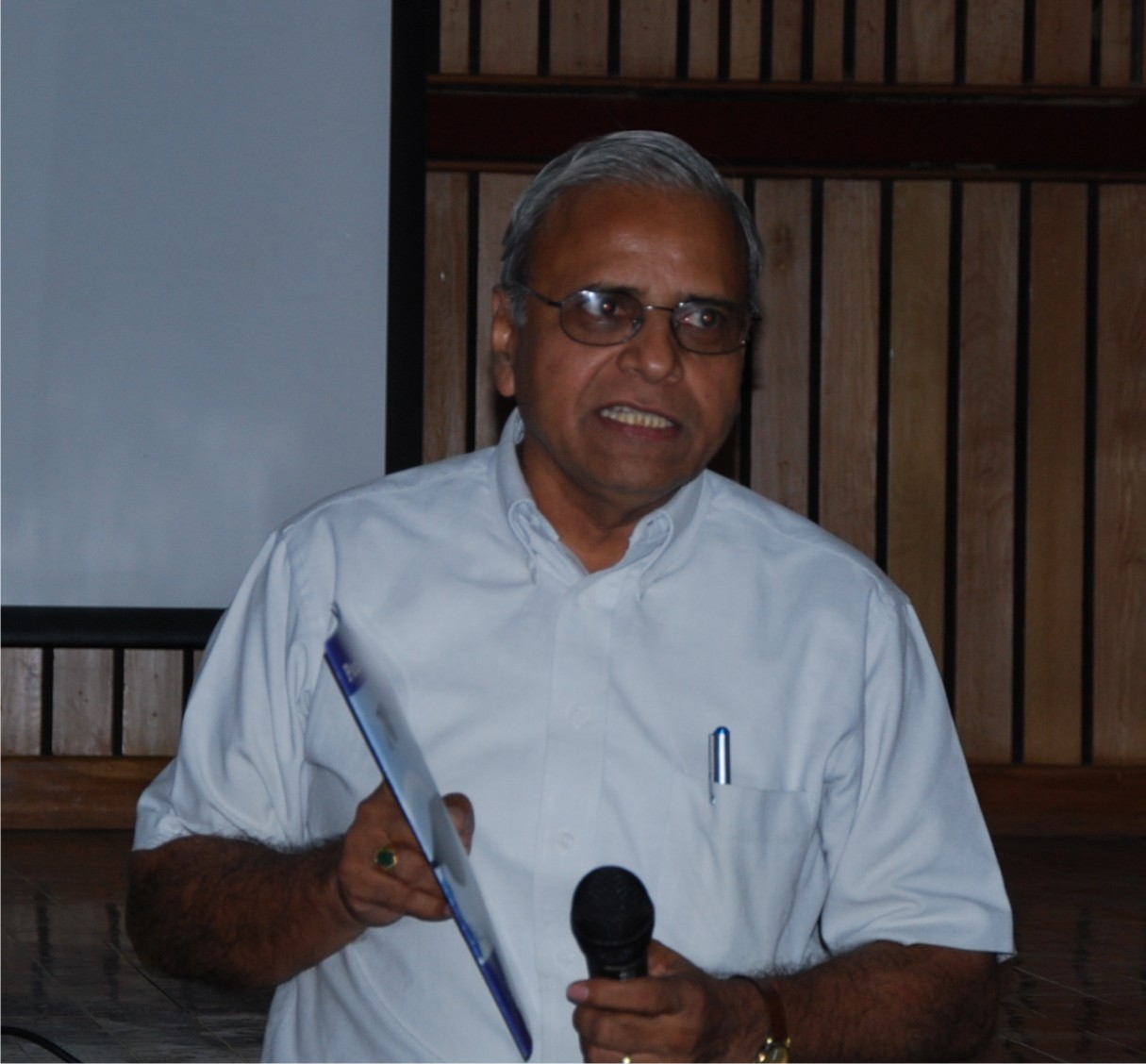 |
Mr. S. N. Zindal,
former Director General, Software Technology Parks of India (STPI),
discussed his vision of higher education and presented Pan IIT ‘Pancha
Ratnas’ - Five Actions to Reform Higher Education in India which
the government should immediately undertake to turn India into a global
hub for knowledge creation and talent development by 2022. These are:
1. Implement Comprehensive Reforms
in Policies and Governance; 2. Mandate Quality and Increase Capacity;
3. Enable Quantum Improvement in Faculty Service Conditions; 4. Deploy
Technology for Teaching and Collaborative Research; 5. Establish an
Active Industry-Academia Interface.
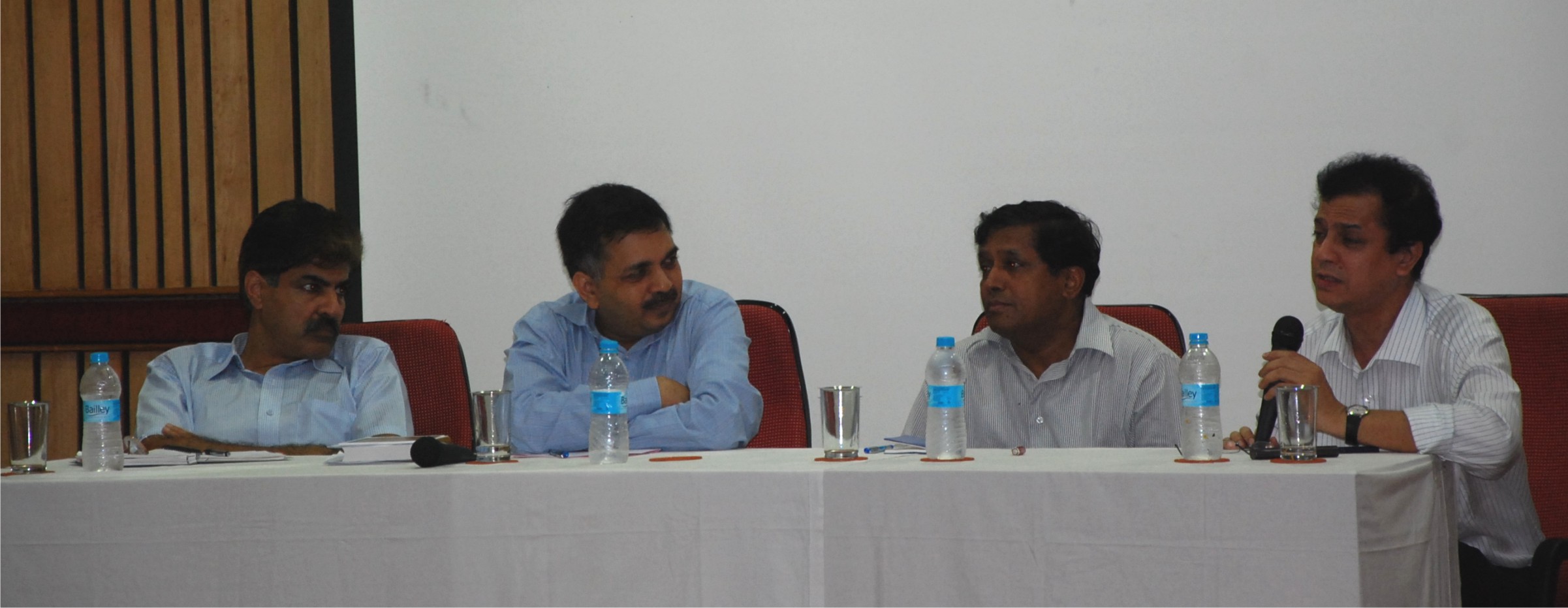 |
The inaugural function ended with a panel discussion. It was a worthy
beginning for the yearlong celebrations.
The theme of the Foundation Day event was ‘IIT Kanpur's Contributions to Society’. The chief guest for the function was the well-known personality Prof. Yash Pal, National Mahatma Gandhi Fellow and former chairman, UGC. He shared the dais with Prof. M. Anandakrishnan, Chairman, Board of Governors, and Prof. Sanjay G. Dhande, Director, IITK.
The traditional opening ceremony of lighting the lamp was followed by
a Saraswati Vandana sung by Mrs. Pragya Khandekar with Mr. Devanand
Pathak on the violin. The first address of the day was by Prof. Dhande.
He highlighted the defining moments of IITK’s history spanning
five decades. For him the two essential criteria for an Institute’s
success are the human spirit and thought process, both unique assets
of mind cultivated by the IITK system of education. Further elaborating
the success achieved by the Institute, Prof. Sanjeev K. Aggarwal, Dean
Resource and Planning, made a presentation highlighting the contribution
of the Institute to society. Since its inception the Institute has been
disseminating seeds of knowledge. It has played a major role in nation
building, serving local communities and underprivileged sections, developing
technologies and facilities and an Indian academic system.
Prof. Yash Pal spoke with much fervor about the renovation and rejuvenation
of higher education in India and the need for the IITs to make a mark
in all fields. He said that rather than setting up new IITs it was necessary
to strengthen the existing ones. In fact there was need for strong post-graduate
and doctoral programs that can produce high quality teachers for academic
institutions. He also talked about the faults in our existing educational
system which has killed the innate curiosity that exists during childhood.
Our minds are conditioned to the extent of losing their luster.
After Prof. Yash Pal’s talk Mr. Irshad Mirza, Chairman, Mirza Tanneries was felicitated for his work. Prof. Manindra Agrawal gave the vote of thanks.
 |
 |
 |
Later in the evening a cultural program was held featuring the world renowned flautist Pt. Hariprasad Chaurasia and his group. He was accompanied by Pt. Subhankar Banerjee on the tabla, Ms. Debopriya Ranadive on the flute and Ms. Amrita Upriti on the tanpura. Pt. Chaurasia started his recital with the festive raaga Madhuvanti, an introductory alap followed by Jod, Gat and khyal. Rhythm and music flowed from his flute. On special request from the audience, he played raagas Malkauns and Hansadhwani-drut alap followed by the famous bandish "Laagi lagan" in Adha teen taal in madhya laya. He concluded his program with a dhun in raaga Pahadi.
 |
The Institute has built a 3-foot long time capsule, made of a special type of copper to preserve its history and store details such as its research activities, photographs, R&D publications and reports, DRPG annual reports, etc. The material in the time capsule has been encapsulated in special polythene and filled with nitrogen.
6th March 2010 saw the launch of this time capsule. It was buried deep
in the ground by the Honorable President of India, Smt. Pratibha Devisingh
Patil. Also present were Shri B. L. Joshi, Honorable Governor of Uttar
Pradesh, Shri Shriprakash Jaiswal, Honorable Union Minister of State
for Coal, Shri Anant Kumar, Honorable Minister for Medical Health and
Family Welfare, Uttar Pradesh, and Prof. M. Anandakrishnan, Chairman,
Board of Governors, IIT Kanpur. The entire campus seemed to have turned
into a fortress with the heavy presence of security.
In the gracious presence of the dignitaries, the time capsule was lowered
into the ground at a location close to the auditorium. A marble rock
transported from Banswada, Rajasthan was placed alongside the site of
the time capsule symbolizing solidity, integrity and permanence –
attributes that IIT Kanpur stands for. Then the Honorable President
planted a sapling. This was followed by the National Anthem and Saraswati
Vandana, after which the dignitaries addressed the audience.
An audio-visual presentation was made of the 50 years of IIT K’s
history. Also, a nano satellite ‘Jugnu’ built by the students
and faculty of IIT Kanpur was handed over to the Indian Space Research
Organization (ISRO). As it was handed over, the President congratulated
the students and the faculty. The hour-long event ended with the singing
of the National Anthem.
 |
 |
 |
University graduation ceremonies have a special place in the life of graduates. These ceremonies mark the end of an enriching journey that leaves an indelible imprint on the minds of young students. Convocation ceremonies of premier institutes like IITs are big affairs, since eminent people from different walks of life are usually invited to be a part of these celebrations.
IIT Kanpur held its 42nd Annual Convocation on 3rd July 2010 with the Honorable Prime Minister Dr. Manmohan Singh as the chief guest of the program. This was the first time that a Prime Minister attended a convocation ceremony at IIT Kanpur. The Institute honored him with a doctoral degree in Science. Dr. Singh is the fifth person to receive an honorary degree from the Institute. Former President Dr. A. P. J. Abdul Kalam and former Prime Minister Mr. Morarji Desai are some other eminent personalities who have been awarded with honorary degrees by the Institute.
The convocation ceremony was held in the afternoon in the campus auditorium. Several meritorious students received their awards from the Prime Minister. These students were Nerella Tejaswi Venu Madhav (President's Gold Medal), Paraj Titum (Director's Gold Medal), Aditya Verma (Ratan Swarup Memorial Prize 2010), Pankaj Akula (Dr. Shankar Dayal Sharma's medal) and Somesh Chandrakant Joshi (National Manufacturing Competitiveness Council [NMCC] Gold Medal). The audience included the dignitaries, faculty members and the parents of the meritorious students. The others could view the ceremony on the large screens that were put up near the venue of the function. It was also broadcast live on IIT Kanpur's Community Radio at 90.4 MHz.
In his address the Prime Minister lauded the contributions made by the Institute in research and development. He emphasised that all IITs should collaborate more with each other in research and also with the corporate sector to come up with cost effective solutions for their socially relevant projects. The Institute used this opportunity to launch some of its major projects. The Solar Energy Research Experimental Station project and the Ganga Basin Project were inaugurated by the Prime Minister himself. The solar plant set up by the Institute is expected to generate 850 kW of electricity for the neighbouring villages like Nankari, Nara Mau, Baikunthpur, etc.
The Prime Minister’s
visit was just an hour-long event. But the convocation ceremony and
the celebrations continued throughout the day. 1195 students were awarded
degrees this year, including 131 PhD degrees.
 |
 |
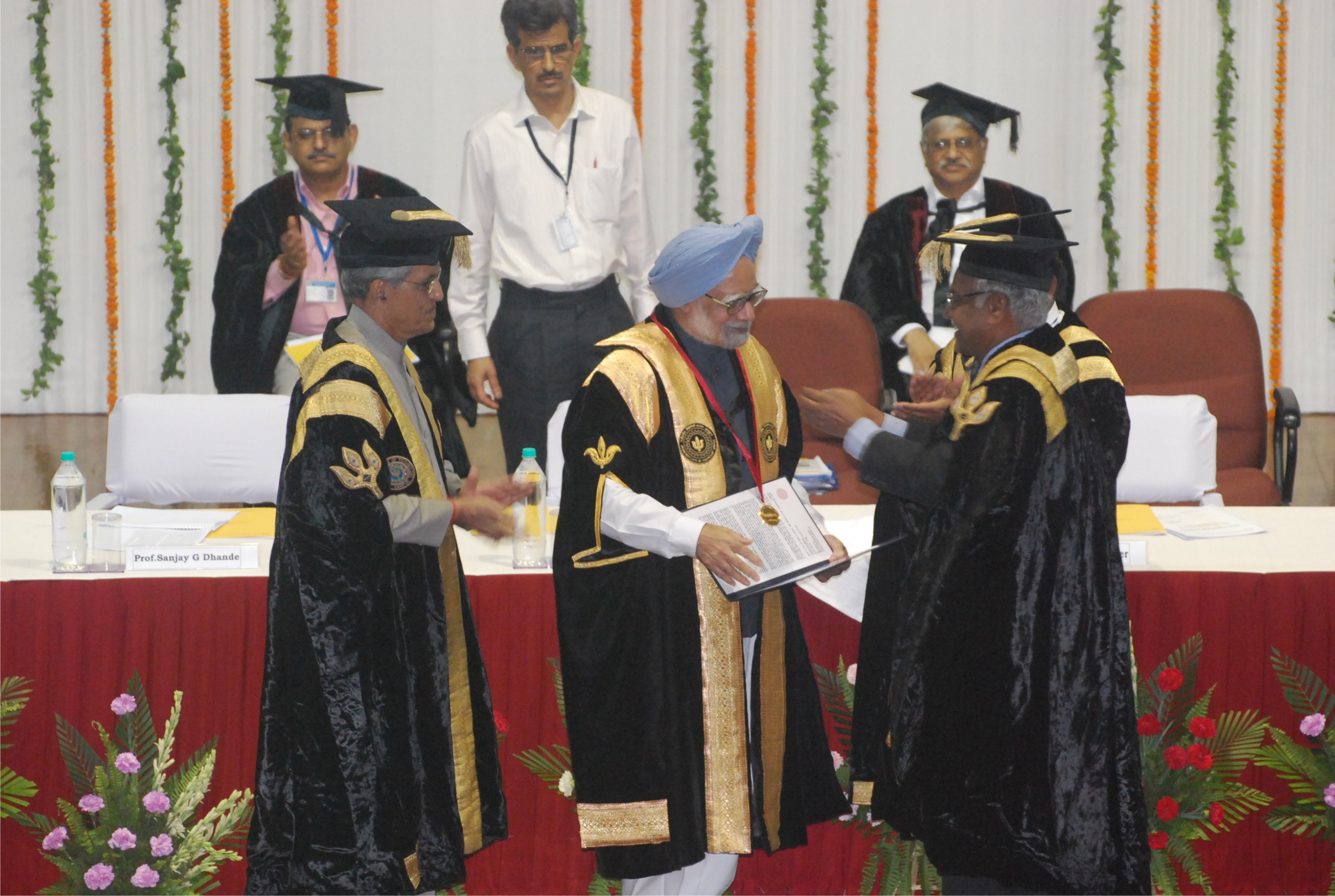 |
Phone: + 91-512-259 7635/ 7542 Fax: +91-512- 259 0353 Email – drpg@iitk.ac.in, arrpg@iitk.ac.in